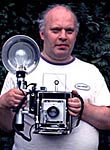|
|
This topic comprises 3 pages: 1 2 3
|
|
Author
|
Topic: Safely Discharging Capacitors on a Scrapped Rectifier
|
|
|
|
|
|
|
|
|
|
|
|
|
|
|
|
|
|
|
|
|
|
|
|
|
|
|
|
|
|
|
|
|
All times are Central (GMT -6:00)
|
This topic comprises 3 pages: 1 2 3
|
Powered by Infopop Corporation
UBB.classicTM
6.3.1.2
The Film-Tech Forums are designed for various members related to the cinema industry to express their opinions, viewpoints and testimonials on various products, services and events based upon speculation, personal knowledge and factual information through use, therefore all views represented here allow no liability upon the publishers of this web site and the owners of said views assume no liability for any ill will resulting from these postings. The posts made here are for educational as well as entertainment purposes and as such anyone viewing this portion of the website must accept these views as statements of the author of that opinion
and agrees to release the authors from any and all liability.
|

 Home
Home
 Products
Products
 Store
Store
 Forum
Forum
 Warehouse
Warehouse
 Contact Us
Contact Us




 Printer-friendly view of this topic
Printer-friendly view of this topic










![[Eek!]](eek.gif) . Indeed you are working with what is the equivelent of a defibrulator except that it is more likely to stop your heart than start it! The best way to discharge them is through a one thousand ohm 10 watt wirewound resistor and appropriate clip leads. Monitor the caps terminals with a DC voltmeter to be sure its gone down to zero.
. Indeed you are working with what is the equivelent of a defibrulator except that it is more likely to stop your heart than start it! The best way to discharge them is through a one thousand ohm 10 watt wirewound resistor and appropriate clip leads. Monitor the caps terminals with a DC voltmeter to be sure its gone down to zero.





